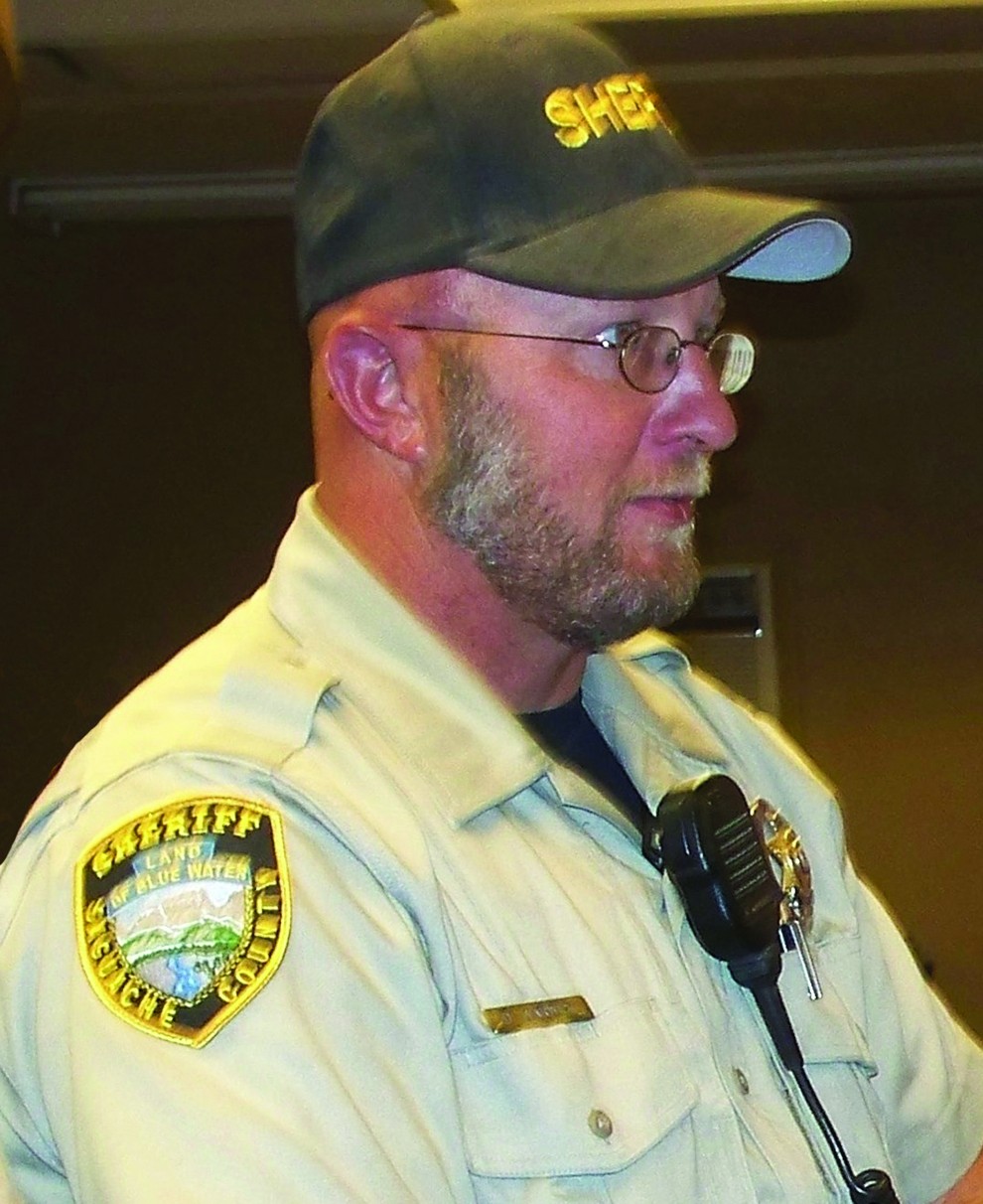Sheriff: sexual assault reports not always credible

By Teresa L. Benns
SAGUACHE — Saguache County Sheriff Dan Warwick says sexual assault reports have been on the rise recently and this in itself is alarming, but what also is alarming is what can happen to the accused and to victims when false allegations of sexual abuse are made.
Some reports received over the past several months have proved to be just that, Warwick explained – allegations that never panned out. He described the scenario of a child or relative who reports what they believe to be an actual incident, but what in fact turns out to be a complete misinterpretation of the facts.
“Even a false accusation about someone, if it gets out to the public, can destroy a person’s life,” Warwick cautioned. “The stigma that follows limits others from associating with the accused person,” often with devastating effects.
Warwick says he is not minimalizing the seriousness of such allegations or their consequences in any way. He encourages those who have experienced sexual abuse to report it immediately and assures the public that all incidents will be carefully investigated.
But what he wants, Warwick says, are just the facts.
“Everything has to be fact-based and evidenced based — it all has to be verified,” Warwick emphasized. “If there is a misinterpretation, it has to be clarified.”
In one incidence a child reported to a school counselor s/he had been held down on the floor and the counselor interpreted the child’s story as sexual abuse. “The parents were just talking to the child, driving home house rules,” Warwick said. “There was never even an accusation of someone being assaulted.” But when the incident was investigated the family almost lost their child(ren).
Overall, Warwick says, counselors must be very careful to determine the true context of what they are told by children. Families have been split apart unnecessarily, ruined financially and children have been alienated from their parents. Those falsely accused have found it difficult to maintain employment, have experienced depression, and in many cases have found it almost impossible to successfully clear their names. Some have even committed suicide.
Internet findings of multiple studies performed between 1987 and 1995 suggested that the rate of false sexual abuse allegations ranged from a low of six percent to a high of 35 percent of reported child sexual abuse cases. More recent studies indicate such allegations are on the rise regarding child custody cases, and the higher percentages are more likely to apply.
Disagreement among experts
Those advocating for the lower percentages of false allegations usually constitute a segment of the population that believe women and children are incapable of misrepresenting the facts in such cases, but statistics do not always support this supposition. In both alleged domestic violence and sexual assault cases, women can also be the ones who initiate the incident, although this is seldom discussed. Those defending both sides of the aisle seem unable to agree on the prevalence of abuse or the findings of different organizations researching the prevalence of false allegations.
Especially since the “me too#” movement started, almost every word spoken to the opposite sex can take on a sexual connotation, Warwick agreed. In such an emotion-laden climate, the assumption is generally that all allegations are to be assumed as true, and all denials as false. This makes getting to the bottom of things in an allegations case even more difficult, Warwick noted.
Referring to the reports he has seen lately, Warwick says it is important for those evaluating such cases to distinguish precisely how a child was touched by an adult. “They were saying they were touched, but it was not in a sexual way,” Warwick explained. “You should definitely report it, but don’t discuss it first with family members or friends until it is investigated.”
Holding such discussions can result in evidence being thrown out in court, even if the incident reported took place. More often than not, however, child and family service organizations, psychologists and attorneys accept reports provided by law enforcement and family members without sufficiently investigating the credibility of those making the reports.
“All of this takes time and resources from law enforcement, the Child Advocacy Center and most of all, parents. I just don’t want to see families destroyed,” Warwick concluded.



